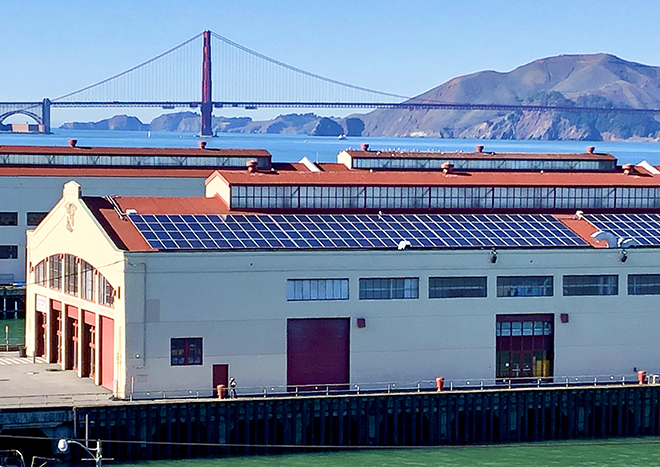Featured Topics
Featured Products
Events
S&P Global Offerings
Featured Topics
Featured Products
Events
S&P Global Offerings
Featured Topics
Featured Products
Events
S&P Global Offerings
Featured Topics
Featured Products
Events
Financial and Market intelligence
Fundamental & Alternative Datasets
Government & Defense
Banking & Capital Markets
Economy & Finance
Energy Transition & Sustainability
Technology & Innovation
Podcasts & Newsletters
Financial and Market intelligence
Fundamental & Alternative Datasets
Government & Defense
Banking & Capital Markets
Economy & Finance
Energy Transition & Sustainability
Technology & Innovation
Podcasts & Newsletters
12 Aug, 2021

| A California building code update could accelerate adoption of rooftop solar. |
Building on a previous requirement for California homebuilders to equip new single-family residences and low-rise apartments with solar arrays, the California Energy Commission on Aug. 11 unanimously approved a building code update to extend the policy to high-rise apartments, offices, warehouses, hotels, retail stores, schools and other large structures.
The revised rules include new battery storage standards for select businesses, enhance energy efficiency and encourage the use of electric heat pumps for space and water heating over natural gas. The rules would go into effect on Jan. 1, 2023, if confirmed by the California Building Standards Commission, which is scheduled to vote in December on whether to uphold the Energy Commission action.
The code also includes an "electric-ready" requirement for homes to make it easier for owners to transition to electric heating and cooking, and to add electric-vehicle charging. It allows some exceptions to the new rules, based on roof and building space.
"Buildings profoundly influence our health, environment and economy. Into the future they will use less energy and emit less pollution while still being comfortable and healthy," Andrew McAllister, a member of the California Energy Commission, or CEC, who spearheads the regulator's energy efficiency efforts, said in a statement. "The 2022 Energy Code firmly pivots California's buildings toward the clean, low-carbon technologies that are the bedrock on which our collective path forward will rest."
The code update will provide $1.5 billion in consumer benefits over the next 30 years while helping to reduce the cost of new technologies and slashing greenhouse gas emissions at buildings, according to the CEC. Homes and businesses are responsible for almost 70% of California's electricity use and a quarter of its greenhouse gas emissions today, the agency added.
Under the rules, businesses required to install solar and batteries must maximize onsite solar consumption and avoid electricity use during periods of peak demand when the grid is heavily dependent on natural gas-fired power plants.
'Another historic first-in-the-nation move'
The state's solar and storage installers applauded the action.
"With the dire warnings by the world's scientists about climate change as background, today's vote is another historic first-in-the-nation move by California to literally build a cleaner energy future," Bernadette Del Chiaro, executive director of the California Solar and Storage Association, said in a statement after the vote. "But we need the cooperation of the entire Newsom Administration to deliver solutions to consumers."
The group, which represents hundreds of solar installers, manufacturers and service providers in the state, including Enphase Energy Inc., SunPower Corp. and Tesla Inc., is engaged in a feisty battle before the California Public Utilities Commission over payments made for onsite solar generation at homes and businesses fed into the grid. An effort to cut rooftop solar payments stumbled in state legislature in June.
The building code update could boost California's solar market by 280 MW a year and battery storage additions by 100 MW/400 MWh annually, according to the Energy Commission.
Dawn Anaiscourt, director of regulatory affairs at Edison International utility Southern California Edison Co., in an Aug. 10 letter to the Energy Commission praised the code update as a "measured, incremental steps toward the future goal of an all-electric code." The utility official called on the state to "fully electrify new construction" in its 2025 code update.
Sempra subsidiary Southern California Gas Co., in a June 21 letter to Commissioner McAllister, cautioned the agency against making "overly optimistic" estimates on the impacts of the code changes and expressed concerns that "cost-effectiveness projections for the cost of electric and gas supply and delivery infrastructure do not reasonably reflect likely outcomes."
